Fijian coach Sakaraia Labalaba is leading Northern Stars in challenging times
(Ronen Dorfan)
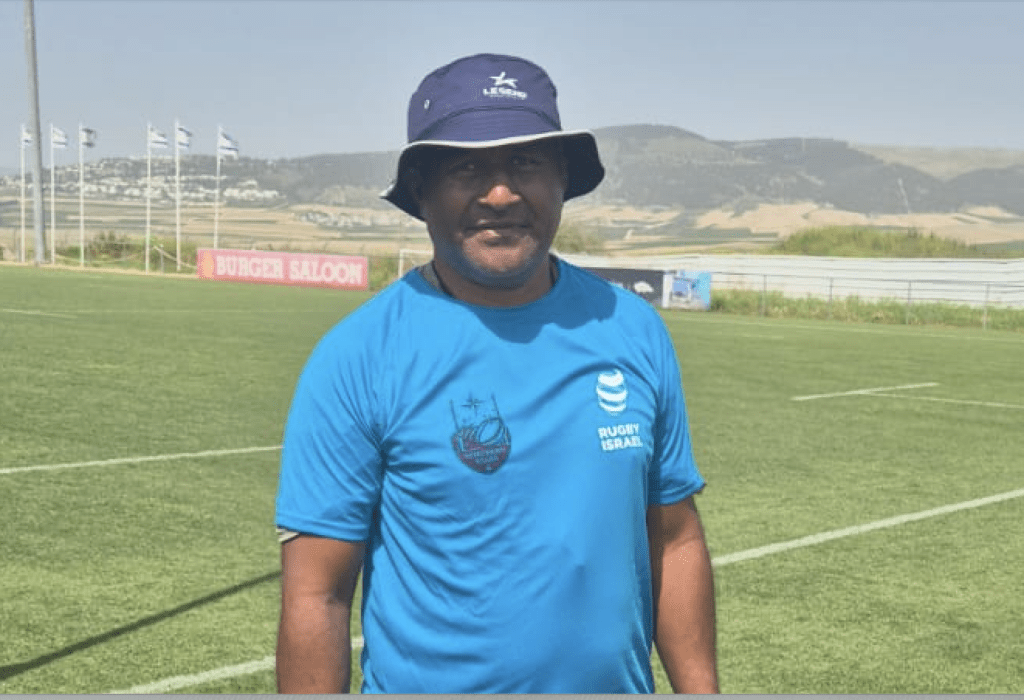
Coaching Rugby in Israel is more than just another professional stint in the life of Sakaraia Labalaba. “Coach Laba” in his homeland. He has been living and working for 6 months in Kibbutz Yizre’el and will lead the Northern Stars in the upcoming regional tournament.
“Israel is not a regular place for me. I come from a very Christian family, and it’s a dream come true for me to be in the holy land. My family always asks if I’ve been to this or that Biblical site, and I have to explainthat I’m here to work,” he laughs. But he does visit the holy sites whenever he gets a chance, and I ask him how they appear to him in reality. Maybe too commercialized in these times? “Look, of course, I didn’t expect things to be like in biblical times. But what happened is that because of the war, these places are empty. No tourists. No people there to explain the place and guide you. And that’s a shame, but it’s still very moving for me to be there.”
How did your connection with Israeli rugby actually begin?
“It began in 2019 when I arranged for two of my players to join Tel Aviv Heat – Nemani Buliraurau and Izzy Emanual. That’s when the initial connection between me and Kevin (Musikanth, Israel and Heat coach) was formed. And when they were looking for a coach to come to Yizre’el, it was a great opportunity.” Buliraurau, it should be noted, is on the pathway to potentially represent Israeli national in the future.
Labalaba was born and raised in the city, the capital Suva, but kibbutz life definitely suits him. “Yes, I come from the city, but it’s island life, and we more or less live like this. Live extended families. People help each other and learn to understand each other.’ This is not the first time rugby has taken him overseas. As a player, he played for clubs in New Zealand, and he has coached in Malaysia, Singapore, and India. In the subcontinent, he was preparing the Indians for the 2010 Commonwealth Games they were hosting.
Israeli players have a very quick understanding of the game, and the basic technique is good. In other countries I would have needed to work a lot on technique,” he gives his initial impression.
National team coach Musikanth expands where Labalaba maintains modesty: “It went beyond just sending the two players. He took the five Fijian players we had that year and conditioned them for us. He’s a tremendous asset to Israeli rugby, a wonderful person, humble, no ego. He brings true rugby values: modesty, respect for everyone playing the game. Never confrontational, explains things gently and patiently. I really hope his involvement in our rugby only grows.'”
*
The beginning wasn’t easy. Coming to the country… and war. It must have been somewhat scary. How did it effect rugby? “Of course it was difficult. There were players missing. It wasn’t possible to hold 15s tournaments, only 7s and 10s. But we did our best. In training sessions in Yizre’el, there are always enough players, and they are very committed. Players from other clubs also came for training. There are rugby programs in schools and many young players in my area. Coaches often consult with me, for example, Tom Berman (the professional director at Hadera. Ed.) asks me things all the time.'”
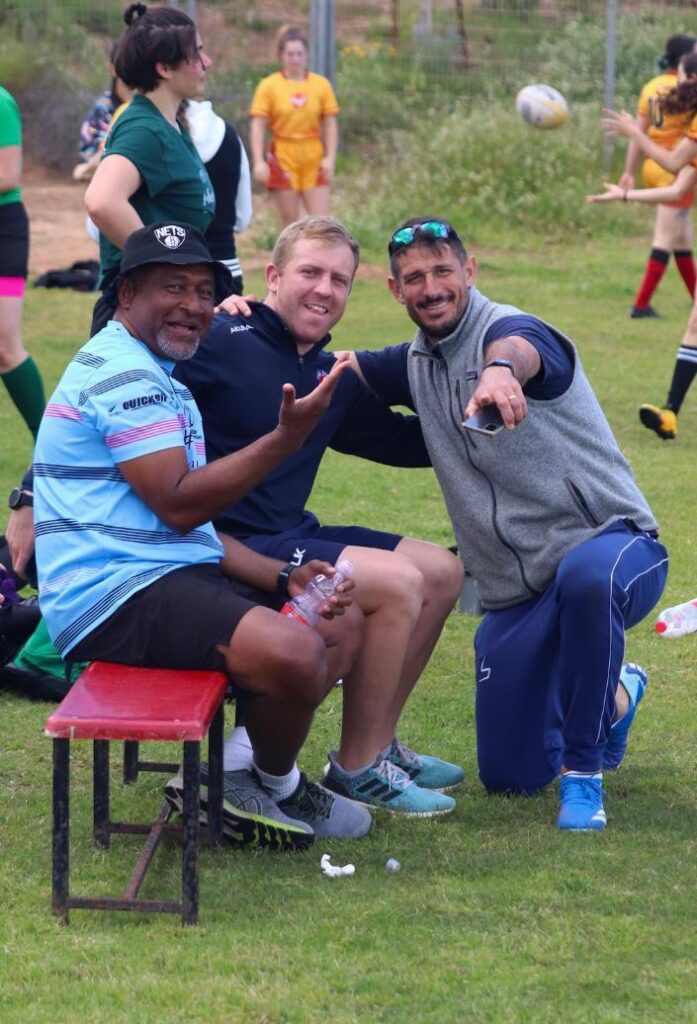
You know, there has always been a significant South African influence from on our rugby. Even the national coach is from there. Territorial fundamental rugby. Can you bring us some of the Fijian magic? “Yes, we Fijians do bring some flair to the game, and that’s why they want us everywhere. Fijians even helped expand rugby in places like France and Italy by making it more exciting. That’s why Kevin really encourages us to come here. He knows what Fijians can do for local rugby.'”
“And that’s great. Fijians also have something to gain. With a Fijian team in the regional league, we bring sports to our soldiers serving in the Golan Heights while we help develop the game here.”
So let’s talk about the regional league – how strong is ‘Ai Matai’ (the Fijian team) in your standards? “Very strong. In Fiji, most of the good players work in various armed forces – army, police, navy. The forces want rugby players because they are disciplined, athletic, and train from Monday to Monday. Many players on this team are provincial so it will be a very good team.'”
Which brings us to the eternal question for every rugby fan: You’re a small population, less than a million people, why are you so good? Endless supply of quality players “I’ve been asked this, of course, in various places I’ve been around the world. To be honest, we ask ourselves this question too. Maybe there’s something cultural here. There was a professor who did some research 40-50 years ago on children. And here’s the story: We have a large Indian population in Fiji that arrived during the British period. He simply placed a ball in the park, a round ball like in soccer, and documented what the children did when they saw it. The Indian children kicked it. The Fijian children picked it up and ran with it.”
So if I’m fortunate enough to visit Fiji, what will I see in kids’ games – a very physical game? “First of all, you won’t need to look for a tournament. Just go to a community, and within a short time, you’ll see kids appearing and starting to play touch rugby. You might even see quite a rough contact game at a young age. The truth is there was a bit of a problem there. Many players got injured in such local tournaments. Now they’ve toughened the rules, and you need approval to organize a tournament.”
What was your playing position? “Full back or outside centre.
More 7s or 15s? “I represented Fiji a bit in 7s tournaments internationally – in Papua New Guinea, Bombay (now Mumbai) and in Australia. In 15s rugby I reached the provincial level. I also played club rugby in New Zealand.”
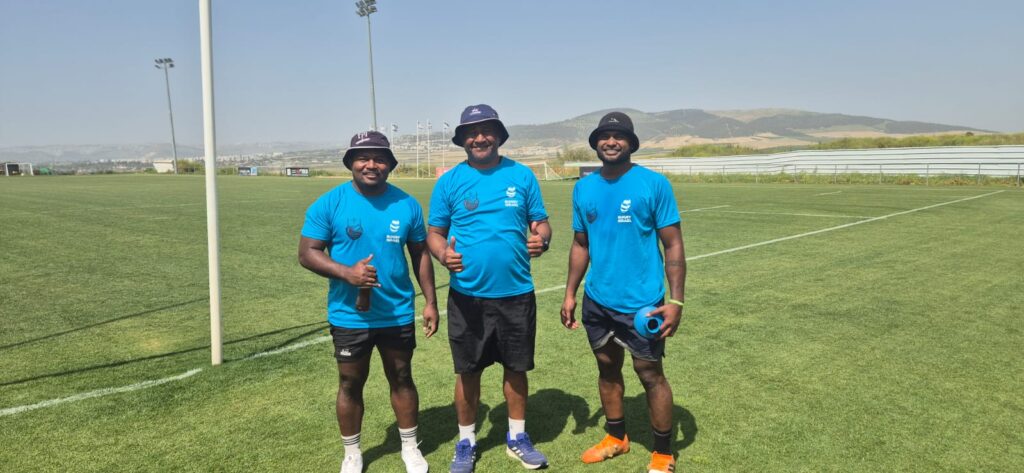
Everyone always raved about Fijian players, but people always said you need foreign coaching. And here: It was a local coach that got you very close to the World Cup semi-finals in France “I’ll be honest – I think we need both. A local coach who understands the culture is very important. And it’s also very important to set standards. I think this happens everywhere; the advantage of a foreign coach is that he’s completely objective. In Fiji, a local coach always knows a lot about the players, their families, and sometimes it complicates things. A guest coach also always knows that his job is on the line. So, he insists on standards.'”
When will you win the World Cup? It seems that the ‘Drua’ franchise Super Rugby gave a big lift “Look, we reached the World Cup quarter-finals in 2007 before the ‘Drua.’ But this franchise has changed a lot. Until then, due to economic reasons, all our good players left. Some went to play for other national teams, and some even left to play rugby league. So we suffered a lot from that. The ‘Drua’ allows professional players to stay in Fiji. To earn well, and even to buy a house. So now our national team is half local and half players who play in France, UK, and places like that. It’s a good balance. Because players from France and England bring professionalism while those from Fiji maintain a sense of unity. I hope the ‘Drua’ will improve even further, and maybe we can go with 70% local players and get closer to a goal like competing for the World Cup.”
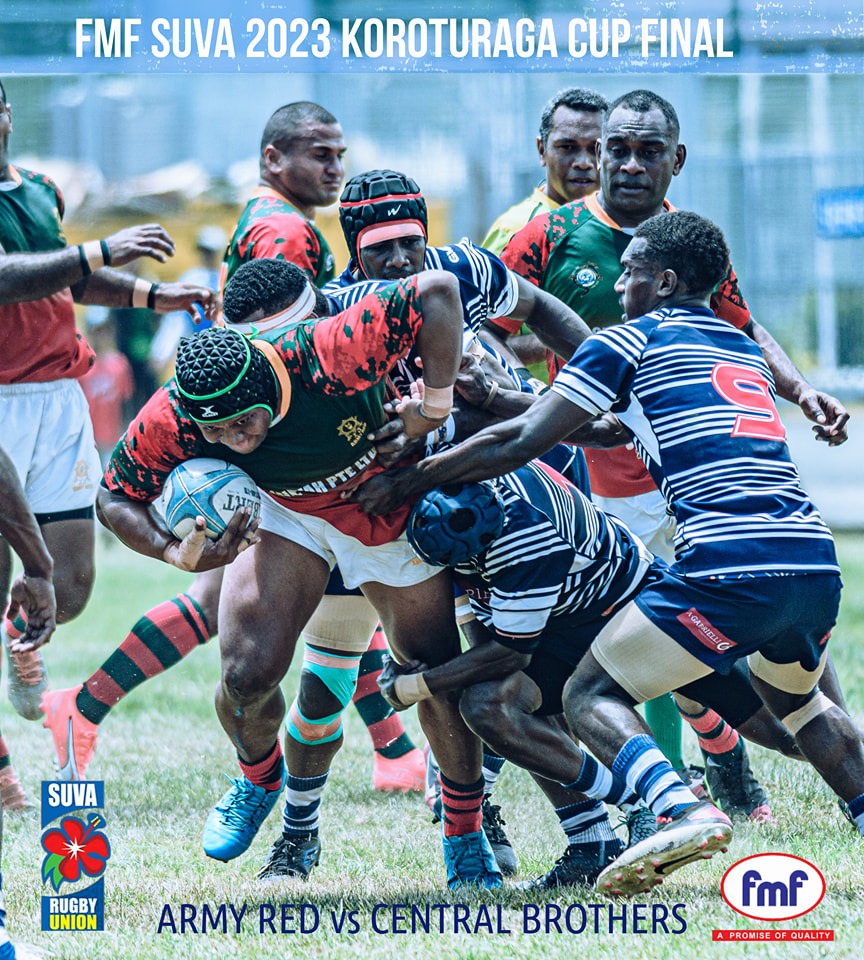
What style can we expect from the Northampton Stars? “I really want to implement a style similar to ours in Fiji. To keep the ball moving all the time. But it requires very high fitness levels. In Fiji, as I mentioned, we train almost every day. Maybe one rest day. To play open rugby, you need fitness.”
So the Israeli players probably hate your training sessions… “The bigger boys complain more (laughs). They come up with all sorts of excuses. But I mix it up. In the end, so that we can play both tight and open.”
What’s the funniest excuse someone came up with? “The funniest excuse is when they tell you that they cannot train because they need to see their girlfriend. In Fiji, relationships always come far behind rugby (laughs). You finish training, and then you find your girlfriend waiting for you on the side of the road, angry.”
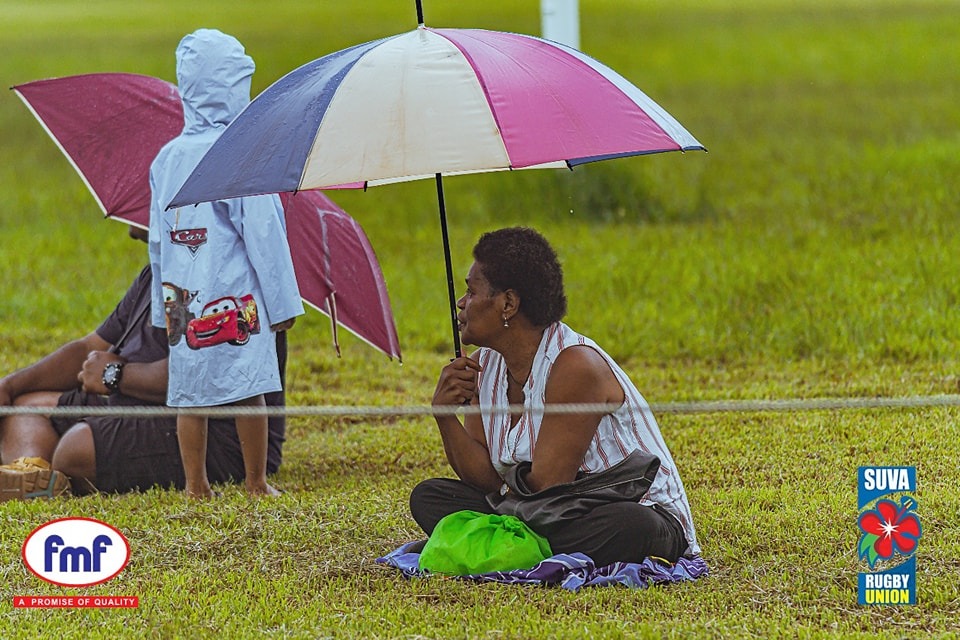
But things changed! In the last Olympics your women brought home a medal (bronze). “Yes, that’s excellent. Women’s rugby is relatively new in Fiji. Of course, our tradition and knowledge about rugby helped the women’s game progress rapidly. After all, people talk rugby in every family, community, on buses, in schools, in church…”
Wait… what do you mean in church? In church you should listen to the Gospel… “We hear the Gospel. but before the Gospel and after you can discuss rugby (laughs).









